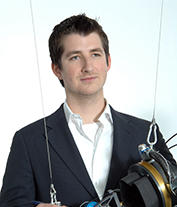Space robots are increasingly being featured in space missions beyond the space station servicing and sampling the surface of Mars. Current and future applications include commercial satellite servicing, assembly and construction, orbital debris removal, planetary and telerobotic exploration, and asteroid sample retrieval. While software-only simulation of these on-orbit missions is a vital tool in terms of mission planning, it is difficult to accurately replicate the physical contact between space robot and its environment. This is required to guide certain critical design requirements and is especially challenging in either unknown or highly dynamic variable environments (e.g. between free-floating satellites). In particular for orbital robotics, the simulation of multi-body contact dynamics within a micro-gravity environment still remains an elusive task on Earth. The purpose of this full-day workshop is to bring together the top researchers in space robotics and associated technologies to review the state of the art in ground-based platforms for verification and validation of space robotic missions and to exchange the latest findings.
The purpose of this full-day workshop is to bring together the top researchers in space robotics and associated technologies to review the state of the art in ground-based platforms for verification and validation of space robotic missions and to exchange the latest findings. While the focus will be on space robotics, speakers from other areas that use motion-based platforms such as the marine community, automotive industry, and medical training will be invited to share ideas on using robotic platforms for simulation. A desired outcome is to share results about the implementation and lessons learned when developing these groundbased resources, and to identify gaps in existing research and technology in support of a mutually beneficial strategy to mature the technology. The long-term goal is to create a path forward for developing ground-based testbeds that can accurately predict motion and dynamic behavior of systems in flight.
The target audience for this workshop includes government and corporate engineers developing hardware simulation tools for real space robotic operations as well as academics being challenged by the many associated research topics. This audience will be interested in developing accurate simulation tools, both to assist with determining mission requirements and to conduct testing and validation of prototype-through-flight systems.

Space Systems Laboratory
Univ. of Maryland
College Park, MD, USA

WVRTC
West Virginia Univ.
WV, USA

ESA
Noordwijk,
The Netherlands